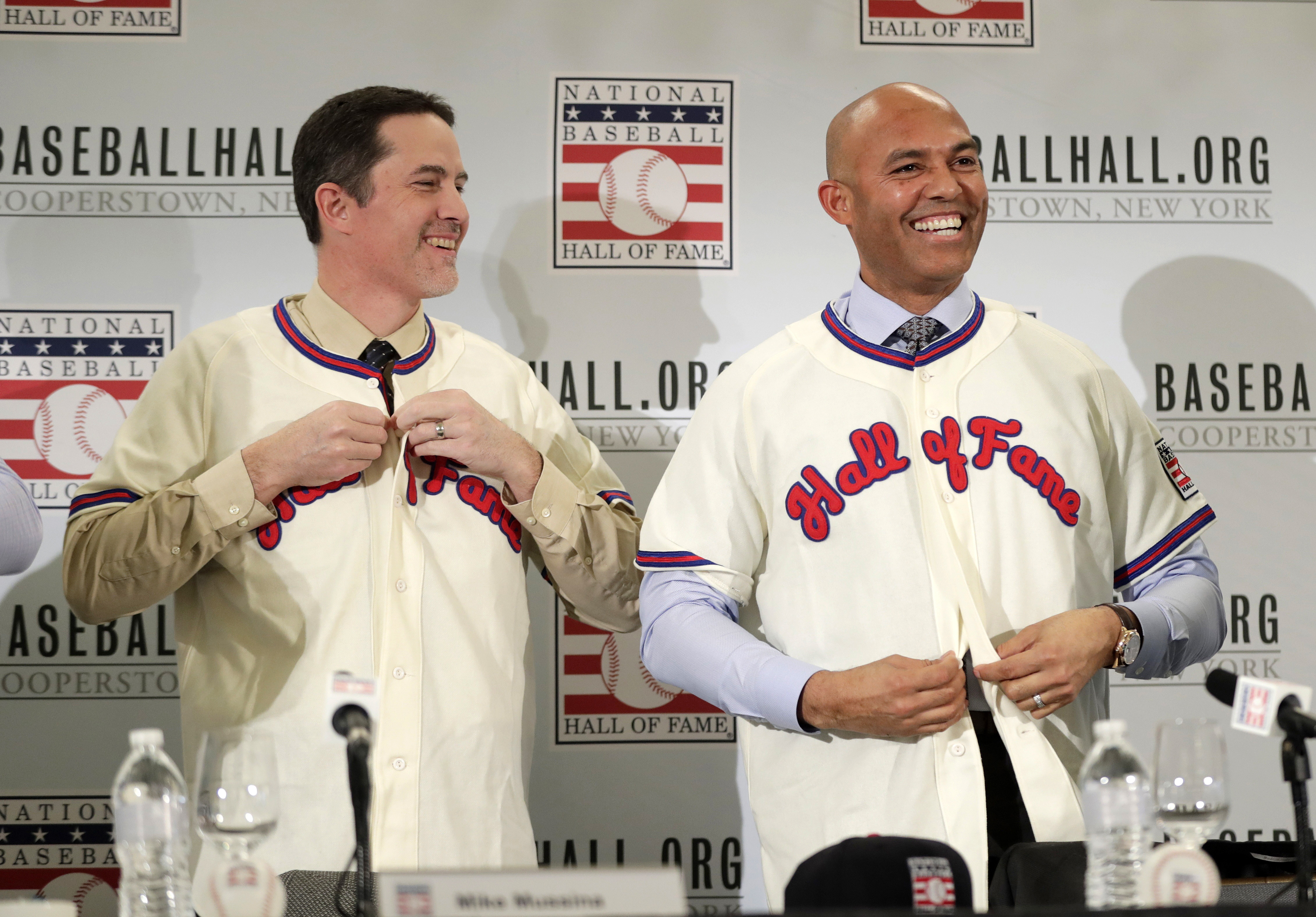
Star Tribune sports columnist Jim Souhan has had it up to here with what baseball writers have had to endure when submitting their votes for the Baseball Hall of Fame.
In his column today, Souhan says he’s done voting, having witnessed firsthand the slings and arrows from baseball fans who dissect the writers’ votes.
Now, before I continue, let me point out this factoid:
In the 2007 ballot, 1.5 percent of the writers did not vote Cal Ripken’s entrance into the Hall of Fame.Two-point-four percent left Tony Gwynn off. Nearly 8 percent didn’t think Roberto Clemente belonged in the Hall after his death in 1973.
Given the great players of the last 150 years, the fact that Mariano Rivera, the former New York Yankees pitcher, is only now the first player to be enshrined with a unanimous vote should be proof enough that writers are flawed, potentially corrupt, in their duty to the Hall of Fame.
Now, back to Souhan who wants to remind us of the unique experise that baseball writers have.
“There is a good reason why baseball writers have made these decisions: Journalistic integrity and objective thinking make writers better qualified than almost anyone else,” he writes.
No.
For decades, baseball writers held statistics dear to their hearts. A .300 hitter was a good hitter, for example. A 20-game pitcher was, by definition, the best pitcher.
Then along came Bill James who mathematically — and accurately — redefined how baseball players are measured.
Bill James was a security guard at a pork-and-beans cannery.
Souhan is correct that one of the problems with the writers is they play games with their ballots, trading votes to help a player in another writer’s city in exchange for that writer’s assistance with a player closer to the heart of the first sportswriter.
That acknowledgement, however, betrays the reality that writers aren’t objective. At all.
Souhan deserves credit, though, for removing himself from the process.
I stopped voting for baseball’s biggest seasonal awards because I felt uncomfortable determining whether a player I cover daily, such as Justin Morneau, Johan Santana or Joe Mauer in their primes, should earn financial bonuses attached to awards.
Abstaining from postseason award voting led me to reconsider voting for the Hall. I saw how emotional Bert Blyleven was about failing to get in for so long. I saw how frustrated Jack Morris was by the process.
I voted for both of them. I thought both were Hall of Famers. But I can’t tell you I kept sentiment from affecting me. And sentiment, in this process, should be disqualifying.
Let me be clear: I admire most baseball writers. I admire those who do their homework and who make their votes public, knowing they’ll be criticized. Even if the outrage of the day is a player not receiving 100 percent of the votes or making it into the Hall in the first year of eligibility. Those occurrences are not outrages, just results of a broad-based democratic process.
Souhan’s comments echo those of other writers, who note that social media has made the task difficult.
“When I first pulled them up, I was called a fascist, a Nazi, a racist,” Bill Ballou of the Worcester Telegram said after he wrote a column that he wouldn’t vote for Rivera. “It was just incredible the things that people called me…. Once that happened I just tuned it out.”
Ballou’s objective reasoning is he didn’t like closers in baseball. He’s not entirely wrong; a closer comes in with nobody on base. A pitcher in, say, the seventh or eighth often comes into the game with a run in scoring position.
But Ballou eventually changed his mind, giving Rivera the distinction other more deserving baseball players in history never got.
“Writers are often left in an awkward spot,” Sports Illustrated’s Jacob Feldman wrote on Thursday. “This isn’t their day job, after all, and while the Hall of Fame is important—maybe the most prestigious professional team sport honor in America —sticking to a principle isn’t worth risking credibility with fans. Not in this media economy.”
In other baseball news: spring training starts in 17 days. Baseball writers will head to Arizona and Florida for a month or so.
Our thoughts and prayers are with them.
